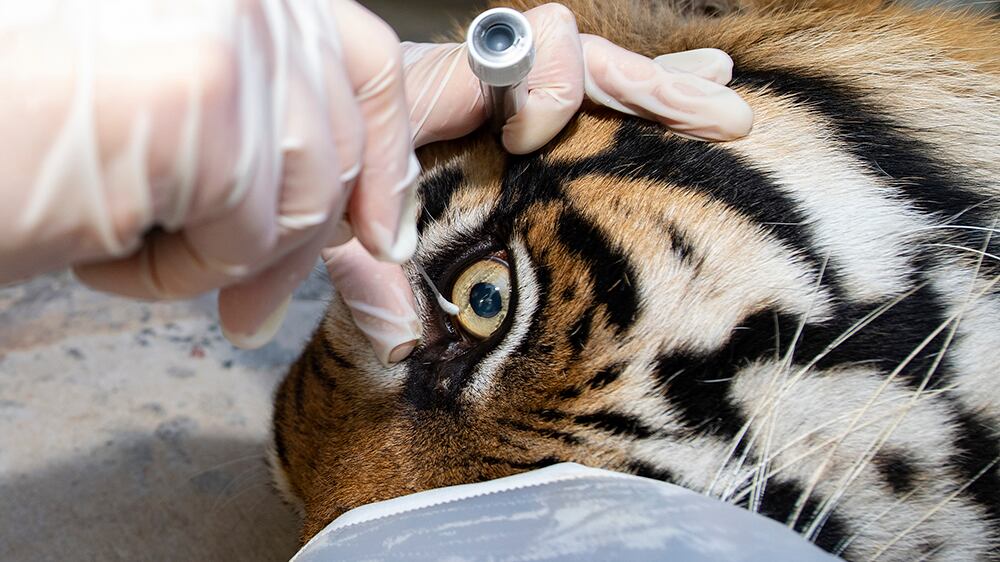MIAMI, Fla. — After noticing that they were showing symptoms of nasal discharge, lethargy and a loss of appetite, Zoo Miami tested two Sumatran tigers for COVID-19 on Wednesday.
The tests on a male and a female tiger came back negative for the virus, and zoo officials are still investigating the cause of those symptoms.
“Though those symptoms could also be associated with a variety of other conditions, because of the ongoing pandemic, combined with the demonstrated ability for tigers to contract the disease, the [COVID-19] tests were administered in an abundance of caution,” zoo spokesman Ron Magill said in a news release, adding that it “could be a wide variety of causes ranging from allergies to a common cold.”
The tests required several nasal, eye, throat, and rectal swabs of the immobilized tigers, from which samples were sent to a state lab for evaluation, Magill said.
It’s a different type of test than what’s administered on humans, so they didn’t use testing equipment that would have been otherwise earmarked for people, according to the zoo.
The Bronx Zoo has reported tigers and lions testing positive for coronavirus.
ALSO SEE: Should you worry about your pet giving you COVID-19?
Copyright 2020 by WPLG Local10.com - All rights reserved.

